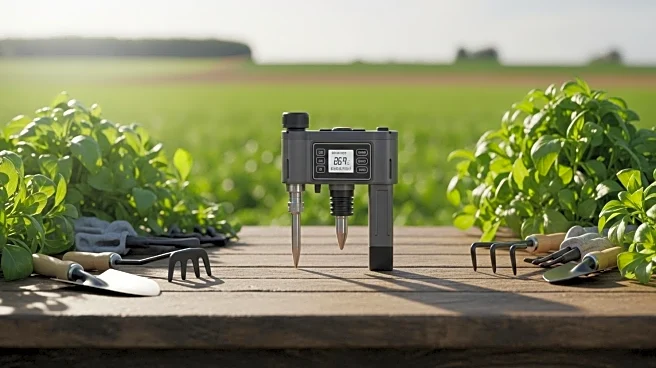What is the story about?
What's Happening?
FarmLab, an Australian company specializing in soil measurement tools, has acquired Ziltek, known for its portable soil scanner, RemScan. This acquisition allows FarmLab to enhance its suite of carbon measurement tools by integrating hardware capabilities. FarmLab, which operates in both Australia and the U.S., aims to reduce the cost of environmental testing while maintaining accuracy. The RemScan device uses infrared spectroscopy to analyze soil, providing detailed information on soil carbon, pH levels, and cation exchange capacity. This technology is expected to lower measurement costs by up to 50% for a single soil carbon test. FarmLab plans to integrate RemScan into its platform and rebrand as GEXLab to reflect its broader market scope, including applications in oil, gas, and land remediation.
Why It's Important?
The acquisition of Ziltek by FarmLab signifies a major step forward in the field of soil measurement and environmental testing. By reducing costs and improving accuracy, FarmLab's expanded toolkit can significantly benefit agricultural practices, particularly in the realm of regenerative agriculture. The integration of RemScan technology allows for more frequent and detailed soil analysis, which is crucial for understanding soil health and carbon sequestration potential. This development is likely to impact industries beyond agriculture, including oil and gas, by providing tools for site remediation and environmental impact reduction. The rebranding to GEXLab indicates FarmLab's intention to cater to a wider range of industries, potentially leading to more sustainable practices across various sectors.
What's Next?
FarmLab plans to integrate RemScan into its existing platform while continuing to support Ziltek's current customers. The company will rebrand as GEXLab to accommodate its expanded market scope. FarmLab is also partnering with Meat and Livestock Australia to create a soil carbon map, which will help farmers assess soil organic carbon changes. This initiative could lead to further collaborations with consumer packaged goods companies and global restaurant chains to support emissions calculations and insetting programs. The focus on soil carbon mapping and regenerative protocols suggests ongoing efforts to enhance sustainability in agriculture and other industries.
















